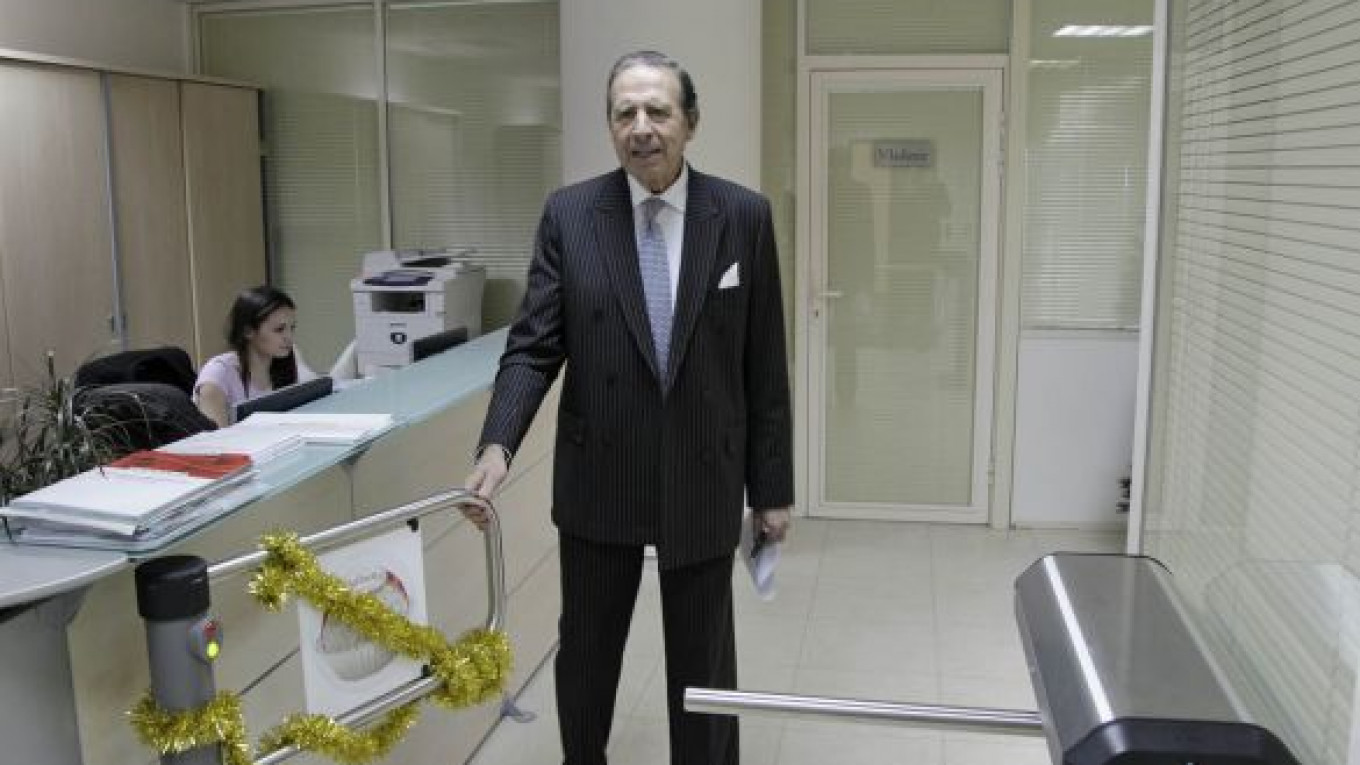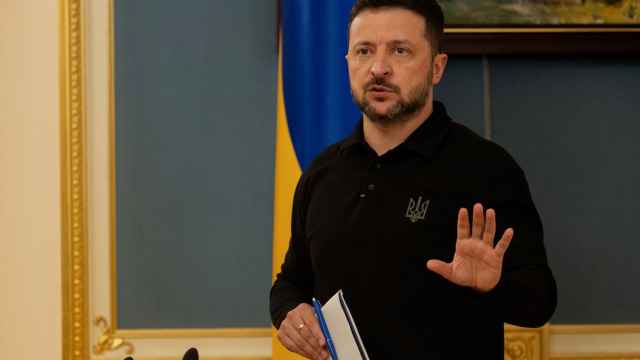Arturo Cardelus bet big on Russia.
Cardelus persuaded his boss about a decade ago to give him a blank check to set up Russian operations for Ferrero, the Italian family-owned producer of chocolate treats like Nutella, Ferrero Rocher and Kinder Surprise.
Cardelus moved to Moscow from his Frankfurt office, where he had been running Ferrero’s activities in central Europe and Russia, and over the next nine years expanded the local staff from 150 to more than 2,000, took hundreds of hours of Russian lessons so he could converse freely with his employees, and opened the company’s first local factory, in the Vladimir region.
Then he packed his bags and left. In August, the same month he turned 70, Cardelus moved to Luxembourg to oversee the development of a new segment of Ferrero’s business.
How did he know it was time to go? Cardelus said the answer is simple: He was on top.
“It’s been a great ride,” Cardelus, a Harvard-educated Spanish national, said over coffee at a restaurant in the Ritz-Carlton hotel. “Every year we have grown. We even grew in gross sales in the crisis years. So I’m leaving at the top, and this is something that we have to always think about. When you leave a job, you always have to leave with your head high. Always. You cannot be like a boxing champion who says, ‘Well, I will have another fight,’ and then loses.”
The question of when is the ideal time to leave a job has bewildered bosses — and their sometimes long-suffering employees — for as long as bosses and employees have had to work together.
Some leaders seem to relish maintaining an iron grip on their positions and the accompanying power. Others stay on for a few awkward years — or sometimes even months — before vanishing into obscurity. But then there are people like Cardelus, who said the signal that it’s time to go is when the company is in top form.
“You have to leave when the opportunity to grow further, to do more things, to become greater, is still there,” he said.
“This is the moment for Russia. Russia is going to continue growing, we are going to continue growing, we are going to continue to grow people,” he said. “This is a great moment to say, ‘OK, this is what I’m leaving, this is my eulogy. Now you take the company and carry on forward to more and more success.’”
This is a philosophy Cardelus said he has practiced during a 50-year career that spans his rise from being a Washington-area-based salesman for Johnson Wax (now SC Johnson) in the 1960s to the company’s vice president for Latin America and Canada.
He also held senior positions at Estee Lauder, Iberia and Toymax International before joining Ferrero in 1999.
Then in the early 2000s, Cardelus told Fererro Group CEO Giovanni Ferrero that he believed that the future lay in Russia and that the best thing he could do for Ferrero was to develop its operations here. He said he boldly asked his boss for two things: his trust and a blank check.
Fererro agreed. And the decision appears to have paid off handsomely. Ferrero, which is known for being tight-lipped with its commercial information, has acknowledged that Russia is its biggest market in the world for Kinder Surprise.
In fact, the chocolate egg’s popularity prompted the company to launch local production at its Vladimir region factory in September, a month after Cardelus left Russia. The factory, which also produces Raffaello and Nutella, will debut its first Russian-themed toys — figurines from the popular Russian fairy tale “Masha and the Bear” — in the eggs next month.
“Leaving at the top doesn’t mean that there is no growth after that,” Cardelus said. “It would be a disaster if I left and the next year people said, ‘Hey, what kind of an inheritance did you leave us? You left, and everything fell apart. It was just a one-man show.’ No. Leaving at the top means that you leave when you have tremendous opportunities ahead of you that somebody else is going to take care of.”
Of course, something might happen the next year that is out of the company’s hands, like a major political event or a devastating war. But then the former boss is no longer the culprit, Cardelus said.
So how does a boss who is on top go about finding a new job?
He doesn’t, Cardelus said. The job comes looking for him.
“Really, it’s not that positions are interesting or not interesting,” he said. “It is you who makes them interesting or not interesting. You can have the most boring opportunity ahead of you and make it the most interesting opportunity. Everything has to do with your attitude, with your leadership style, with your motivational capabilities. You can really bring opportunities to life.”
In Cardelus’ own case, it was his boss who asked him to move to Luxembourg.
“I didn’t look for other opportunities,” Cardelus said. “I work for a company, a family-owned corporation, and the owner told me: ‘Arturo, I need you here. You’ve done a very good job in Russia. Now I need you someplace else because I know that Russia is going to continue growing and going to continue to do well because of what you have done.’
“So I said, ‘Yes, if I can help you, I’ll be delighted to continue helping you.’”
The bottom line, Cardelus said, is this: “If you ever think of changing jobs, change it when you’re doing the best, because that’s the right moment. You will leave memories that are always great, that are always positive and that leave some value behind.”
Related articles:
A Message from The Moscow Times:
Dear readers,
We are facing unprecedented challenges. Russia's Prosecutor General's Office has designated The Moscow Times as an "undesirable" organization, criminalizing our work and putting our staff at risk of prosecution. This follows our earlier unjust labeling as a "foreign agent."
These actions are direct attempts to silence independent journalism in Russia. The authorities claim our work "discredits the decisions of the Russian leadership." We see things differently: we strive to provide accurate, unbiased reporting on Russia.
We, the journalists of The Moscow Times, refuse to be silenced. But to continue our work, we need your help.
Your support, no matter how small, makes a world of difference. If you can, please support us monthly starting from just $2. It's quick to set up, and every contribution makes a significant impact.
By supporting The Moscow Times, you're defending open, independent journalism in the face of repression. Thank you for standing with us.
Remind me later.






